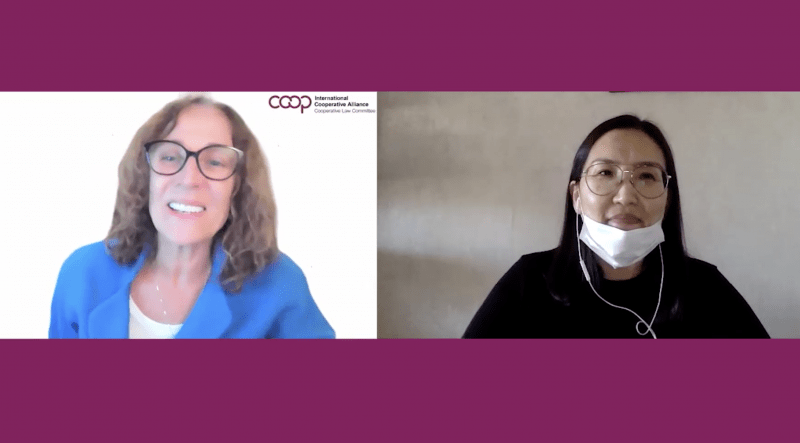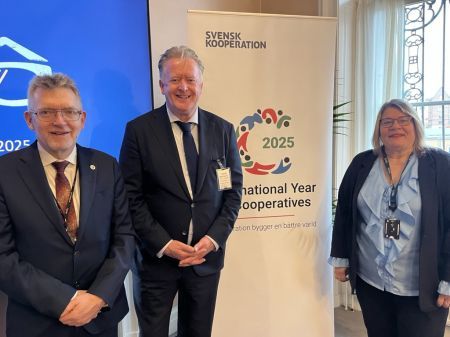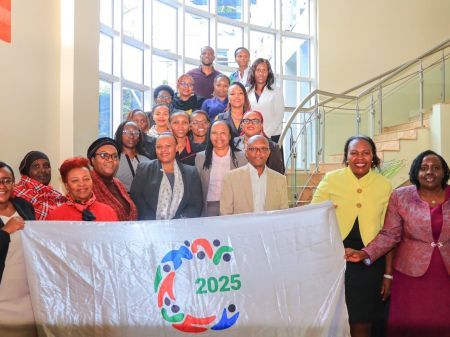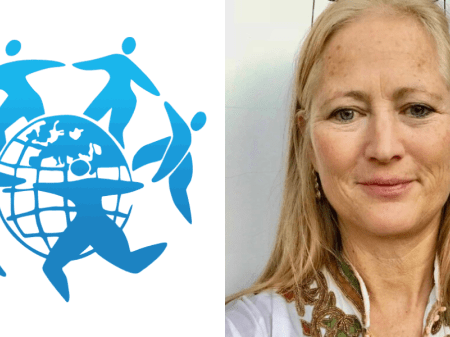
Known for its nomadic culture, vast expanses and the Gobi desert, Mongolia is also home to over 4,700 cooperatives. These operate in various sectors, from agriculture and retail to transport, finance and services.
Recognising the movement’s important role, the country’s parliament adopted a new cooperative law in May. To find out what changes the new law might bring, Ann Apps interviewed Altantuya Tseden-Ish, the Vice-President of the National Association of Mongolian Agricultural Cooperatives. The interview was facilitated by the International Cooperative Alliance’s Cooperative Law Committee (ICA-CLC).
Ms Apps is a Lecturer at the University of Newcastle’s Law School in Australia, and she is actively engaged in the promotion of cooperative education in the Australian tertiary sector. She is also a member of ICA-CLC.
Ms Tseden-Ish has been involved in the cooperative sector for over ten years. Her role at the national apex for agricultural cooperatives focuses on consolidating and advocating for the sector. The largest cooperatives in the country are in the agricultural sector where herders’ cooperatives are very common. Saving and credit cooperatives are regulated in accordance with a separate law while the rest of the sector follows a general cooperative law adopted in 1995. The new law passed in May builds on the 1995 text while introducing several changes.
“The new law aimed to fix the old law so we kept a lot of provisions from the old law, but some provisions made the regulations clearer or more detailed,” explained Ms Tseden-Ish. Changes include a new definition of reserve funds to ensure they are not considered risk funds by regulators. The terminology also clarifies the concept of services to members, to differentiate between a cooperative’s surplus and the profit of a company.
The law also features a chapter on the rights and the responsibilities of central government and local authorities to explain how cooperatives can be supported and how regulations should be implemented at local level.
Another change makes it compulsory for all cooperatives to join cooperative federations.
“The main responsibility of the cooperative associations is to provide continuous training to the members and their cooperative development, and also to assist cooperatives to grow,” said Ms Tseden-Ish. Currently only one third of all Mongolian cooperatives are members of cooperative federations, which makes it difficult for the government to work with the cooperative sector or gather clear data on it.
“At the moment cooperatives are just developing on their own and the growth is not enough,” added Ms Tseden-Ish. “But the government sees potential particularly in rural development where cooperatives play a very important role. That's why they want all cooperatives to join the national or maybe provincial associations and through those associations they want to support cooperatives.
“For the government it's easy to work with the associations to which all cooperatives belong, and through their associations they can promote and support cooperatives. That was the idea behind this change.”
Her organisation was actively involved in helping to draft the legislation, a process which involved setting up a working group in parliament. Members of the group included lawyers who were members of parliament, cooperators and tax office representatives. Via the group, the country’s cooperatives were also able to address some misconceptions that members of parliament and tax officials had with regards to the sector.
“We had to explain why we needed a specific legal reform so it was an enlightening course for those people, and it was a big responsibility for us as well,” said Ms Tseden-Ish.
The members of the working group were then able to lobby for the law in the wider parliament, she added.“It was a very long process and not an easy one. During that time some ministries and ministers and ministry personnel also changed. So, we had to start from the beginning again, having to talk to them and educate them about cooperatives.”
Now the law has been adopted, the main challenge for the movement will be implementing it.
“The first challenge is that we need to promote the law not only among our members and the cooperative members, but also to the local authorities and government offices,” said Ms Tseden-Ish.
Her organisation will be running a series of workshops and events to raise awareness about the changes introduced with the new law. The apex is also drafting an implementation manual to help its members get a better understanding of the new law.
In spite of the new law, the country’s cooperative movement continues to face several challenges, including attracting young people and being able to market products without using the middlemen who dominate trade.
The five cooperative apexes will continue to lobby the government to allow cooperatives to directly sell their products in the agricultural commodity exchange, which are currently dominated by middlemen. Sometimes the middlemen set up their own cooperatives, which they control without giving a voice to the herders who are not aware of how the cooperatives should be run. The federations will continue to work with authorities to raise awareness about fake cooperatives and ensure those registering cooperatives know how they should operate.
Having gone through a long process of lobbying government officials, parliament and regulators, the country’s cooperative movement has some good lessons to share.
“First of all, you have to look for your own cooperative movement and choose the problems that the cooperative sector faces. Secondly, I think that international legislation research papers are very handy,” said Ms Tseden-Ish.
She encouraged cooperative movements looking to amend legislation in their countries to read the ILO’s guidelines on cooperative legislation and contact cooperative legal experts as well as the ICA’s committee on cooperative law.
“The initial draft law we submitted was 50-60% changed and it's been a long process, you need to be very patient and then you will succeed. It took us more than 12 years,” she concluded.
Balu Iyer, the Regional Director of ICA-Asia Pacific said: “I am delighted that after 12 years of tireless effort by cooperators in Mongolia, the new cooperative law has been adopted by the State Great Khural! It incorporates important elements of services to members and support to cooperatives, defines reserve funds and differentiates between surpluses of cooperatives and profits of companies. The new law assigns importance to continuous training to members and growth of cooperatives.”
Read the interview transcript here or watch the full interview below.




